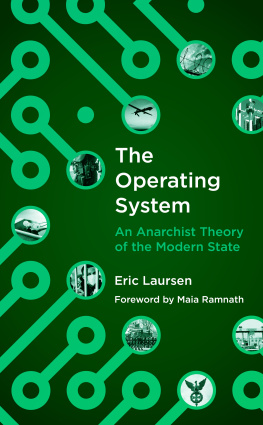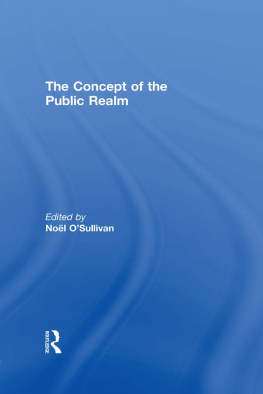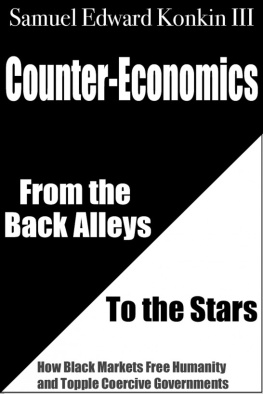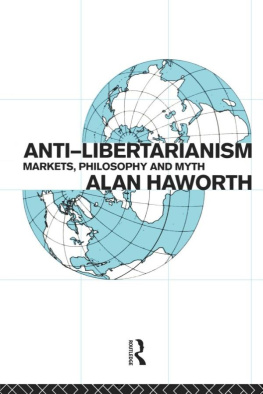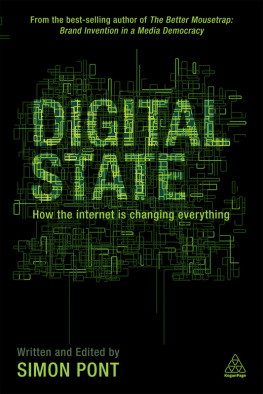Book on Strategy
Crypto-Anarchy, Tradecraft, TAZ and Counterculture
This is a booklet for people in search for liberty, and who subscribe to a philosophy of personal, civil and economic liberty through the absence of government in their lives, along with the presence of strong property rights. Among the varying philosophies that hold this view the most noted is probably that of Anarcho-Capitalism of both the Rothbardian and the Friedmanite flavor. The authors of this booklet subscribe to the former and it is that perspective that should be taken into account to take the most value from this text.
Thanks to Timothy C. May, Hakim Bey, Murray Rothbard, J. Neil Schulman and Samuel Edward Konkin III for inspiration and ideas to build on.
We also thank "The Free and Unashamed" for asking us to write down our thoughts, and for supporting us in doing so. While you remain a mystery to us, you seem to be a good mystery.
About the authors:
This book was written by and "XYZ". We are the sole people responsible. These are our thoughts.
If you like this book:
If this booked helped you, gave you pleasure or just new things to think about, please say "Thank You" by sending us some Bitcoin to:
1DrjUiCT4Wzij8hLYBTYmfPubZMNf2PubU
Contents
Motivation
Anyone subscribing to a radical philosophy of liberty, must face the pressing question of how to progress from our current condition of insufficient liberty, to a society where individual liberty is respected.
Several strategies for this change have been proposed, ranging from political participation, educating and convincing the masses, civil-disobedience, secession and counter-economics, to outright revolution.
While these proposals all have some interesting aspects, they are very often naive or poorly informed as to what really shapes society.
The fundamental flaw to most of these strategies, with a slight exception in the theory of counter-economics, is the reliance on mass change of social, cultural and economic structures and people in general.
It has often been overlooked by voluntaryists that collective thinking dominates many of our personal decision making processes, which is why most of these strategies err by the fallacy of big numbers. By this term, we mean the belief that we must wait for progress until a large number of people rally to the support of our cause.
We disagree, and we think that waiting has been a mistake, and often chosen for the purpose of avoiding risks. We wish to minimize risk, but not to the point of inaction.
Armies of supporters are however not to be expected. The reason for this should be accessible to economists and psychologists alike:
Both production and parasitism are natural human strategies to satisfy personal desires. Both strategies appear naturally and are present within most people (with the exceptions of idealists and moralists on the one hand and outright sociopaths on the other).
Both strategies can easily be seen in modern life, with parasitism becoming more profitable with every political intervention.
Our current redistributive society moves property from producers to parasites, as well as shifting decisions from the individual to the ruler. (The ruler, of course, is held above all personal responsibility, recourse or personal risk.)
A surprisingly large number of people in modern societies are in favor of the redistribution of property, sometimes knowingly and sometimes merely because they regard the rules of the game more than the morals of the game: they see redistribution as the way of the world and work to get "their share."
Parasitism, where enforced by a government, is easier than working. It provides a comparable level of consumption for less effort. In addition, it removes hundreds of daily decisions from an individual, along with the bad feelings of facing mistakes.
It is sadly a truism that most people only want the freedom to be comfortable.
Libertarian class theory describes two classes of people in society: Those that pay more taxes than they consume of public services, and those that consume more public services than they pay taxes. That is: Tax-payers and Tax-feeders.
What is under-appreciated is the size of the second group. In most developing countries, tax-feeders make up far more than a third of the employed, from direct bureaucrats to industries living of public money or regulation. In many developed countries, tax-feeders have approach or passed 50%. (The massive creation of fiat currency has allowed governments to keep this unsustainable game going... so far.) Millions of people profit from this arrangement and will fight to keep it going till the last moment.
If one combines only these two motives for intervening government, redistribution of property and shifting of decisions, an easy majority of people profit from the existence of such an institution.
There are however additional motives for the existence of the state as a social organization.
One is the identity creating feeling of "belonging" to something - a natural, and not always negative motivator of humans. This is regularly exploited by the state to assure support and to limit dissent.
Another motive is the perception of risks and lost opportunities from a change from the current status-quo to a new society solely based on voluntary interaction, contract and optional law. People feel comfort in the current arrangement and don't want to endure the strain of adapting to a new situation. This is understandable.
The reflexive questions that are instantly asked are ones like these: Who will care for the sick, the old, the children, the environment? Who will build the roads, maintain security, license the doctors and make sure the trains will be on time?
These questions are often brushed away with a correct, but superficial, reply of "the market." However, this reply is not sufficient. The "market" does not take care of anything - it is merely a system of interaction and exchange. People find solutions to human problems; entrepreneurs spend time and effort to find solutions others will be willing to trade for, and, if they are correct, profit thereby.
Without new supplies of these services (which are generally forbidden by force under the current regimes) the perception of risk cannot be sufficiently countered - certainly not for someone who is agitatedly asking the question so that the frightening possibility of a new human arrangement may be quickly dismissed.
The third motive against change to a voluntary society is the perceived cost of change itself. Aside from adapting to new ways of living, any change will find resistance and risk of failure, ranging from the loss of money or time, to loosing life or liberty itself. Very few people are willing to take these risks, and many would be needed to achieve any meaningful change in an entire society.
After all, liberty is costly.
The reasonable conclusion, then, is to cease hoping for large numbers of supporters and instead to focus on strategies that make individual liberty possible in the current situation.
But, while we have ceased hoping for massive events to bring liberty to us, we have not given up hope for liberty - we have merely faced the fact that we'll have to build it brick-by-brick, for ourselves, without waiting for support or permission.
Fortunately, these methods allow us to model a voluntary society for those less willing to take risks, so that a formerly intellectual concept can be shown to them in real life - here and now, to see and feel with no waiting.
This does not require many like-minded people.




